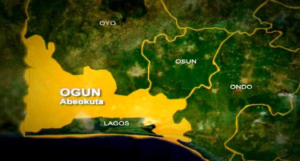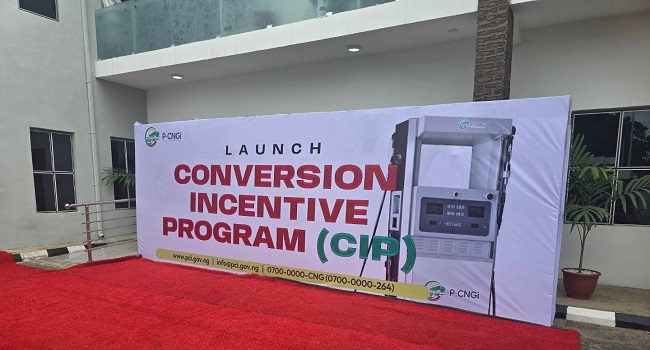The Presidential Compressed Natural Gas Initiative (PCNGI) is making significant strides in transforming Nigeria’s energy landscape by expanding its network of Compressed Natural Gas (CNG) conversion centers. In a recent move, the PCNGI launched nine additional conversion centers across Oyo and Ogun States, bringing the total number of conversion centers in these states to 55. This development was marked by official launch events held on Thursday and Friday, respectively, reflecting the federal government’s commitment to advancing cleaner energy solutions and reducing the nation’s dependency on imported petroleum products.
The addition of these nine conversion centers signifies a substantial step forward in Nigeria’s journey towards a greener, more sustainable energy future. With the inclusion of Oyo and Ogun States, the number of states now hosting CNG conversion centers rises to seven, a clear indicator of the initiative’s expanding reach. This was announced in a statement by Taiwo Fashipe, the PCNGI Communications Director, in Abuja on Friday, signaling the government’s proactive approach to energy diversification.
 The launch of these new centers comes on the heels of the PCNGI’s recent introduction of the Rideshare CNG conversion incentive programme and the MYCNG APP, both of which are designed to facilitate and encourage the adoption of CNG as a viable alternative to traditional fuel sources. The Rideshare programme aims to provide incentives for vehicle owners to convert to CNG, while the MYCNG APP offers a user-friendly platform for accessing information about CNG stations, conversion centers, and other related services. These initiatives are part of a broader strategy to reduce Nigeria’s reliance on petrol and diesel, which are not only costly but also harmful to the environment and public health.
The launch of these new centers comes on the heels of the PCNGI’s recent introduction of the Rideshare CNG conversion incentive programme and the MYCNG APP, both of which are designed to facilitate and encourage the adoption of CNG as a viable alternative to traditional fuel sources. The Rideshare programme aims to provide incentives for vehicle owners to convert to CNG, while the MYCNG APP offers a user-friendly platform for accessing information about CNG stations, conversion centers, and other related services. These initiatives are part of a broader strategy to reduce Nigeria’s reliance on petrol and diesel, which are not only costly but also harmful to the environment and public health.
During the launch event in Ibadan, Oyo State, Michael Oluwagbemi, the Chief Executive Officer and Programme Director of PCNGI, highlighted the strategic importance of the initiative in mitigating the impact of fuel subsidy removal. He noted that the initiative aligns with President Bola Tinubu’s Renewed Hope Agenda, which aims to promote economic growth, environmental sustainability, and energy security. Oluwagbemi urged Nigerians to embrace the initiative wholeheartedly, emphasizing that leveraging the country’s abundant natural gas resources could significantly reduce the nation’s energy costs and environmental impact.
“The President urged Nigerians not to doubt the initiative but to allow the nation to leverage its resources,” Oluwagbemi stated. He lamented that Nigeria has long been reliant on imported and subsidized petroleum products, a dependency that has placed the country’s economic destiny in the hands of foreign nations. “Nigeria has continued to pay for expensive PMS and diesel, which are not only detrimental to our health but also to our finances. The better alternative is to utilize what we have, which is cleaner, cheaper, safer, and more reliable,” he added.
Oluwagbemi highlighted the vast potential of Nigeria’s natural gas reserves, noting that 30 out of the 36 states in the country have significant natural gas deposits. With enough reserves to last over a century, Nigeria is positioned as one of the largest gas reserve nations globally and the leading one in Africa. This abundant resource provides a unique opportunity for the country to transform its energy sector, reduce its carbon footprint, and create a more sustainable and self-sufficient economy.
Comparing the CNG option to the operations of the Dangote refinery, Oluwagbemi explained that while the refinery processes approximately 650,000 barrels per day, producing about 100 million liters of petrol daily, the infrastructure required for CNG conversion is far less complex and costly. “Converting vehicles to CNG would not require the same scale of infrastructure, making petrol both costly and space-consuming,” he noted. This makes CNG a more practical and efficient solution for meeting Nigeria’s energy needs, especially in the transportation sector.
Oluwagbemi also pointed out the safety advantages of CNG over traditional fuels. “With all these natural blessings, why would Nigerians live beside the ocean and wash their hands with spit? Why would we have these abundant gas resources, which are easier to produce, cheaper for our pockets, cleaner for our environment, and safer, and not make good use of them?” he asked rhetorically. He highlighted that in the event of a petrol tanker accident, nine out of ten incidents result in an explosion, whereas only one out of ten CNG-related incidents leads to such a catastrophic outcome. CNG is eight times less explosive than diesel and 18 times less explosive than petrol, making it a much safer option for transportation and other uses.
The expansion of CNG conversion centers to Ogun State was marked by a launch event in Abeokuta, where Oluwagbemi commended the state for being a pioneer in adopting CNG for transportation. “What we are doing here now is to flag off the incentive programme that the President announced in his last speech to the nation, where he talked about the difficulties of all Nigerians. He mentioned that a million vehicles are going to be converted either for free. We are here to fulfill the president’s promise here in the city of Abeokuta,” he said.
The event in Ogun State saw the signing of agreements with four conversion center partners, further cementing the state’s commitment to the CNG initiative. These partnerships are expected to facilitate the conversion of a substantial number of vehicles, thereby reducing the state’s reliance on petrol and diesel and promoting the use of cleaner energy.
In conclusion, the launch of these additional CNG conversion centers in Oyo and Ogun States marks a significant milestone in Nigeria’s efforts to transition to a more sustainable energy future. The PCNGI’s initiatives not only aim to reduce the environmental impact of the nation’s energy consumption but also to enhance economic stability and energy security. By embracing CNG, Nigeria can harness its abundant natural resources, reduce its dependence on imported fuels, and pave the way for a cleaner, safer, and more prosperous future for all its citizens. As the nation moves forward, the success of these initiatives will depend on the collective efforts of the government, private sector, and the Nigerian people to support and adopt these transformative energy solutions.




